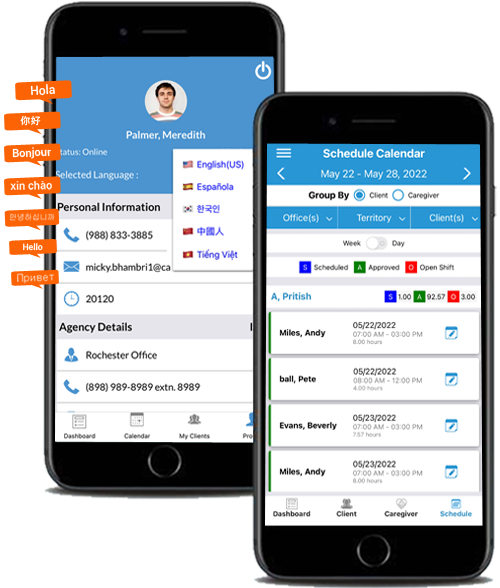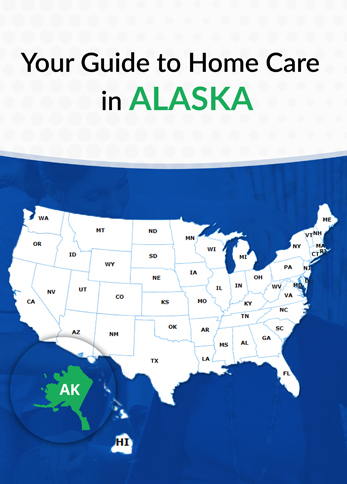Alaska’s Trusted EVV +
Home Care Software Partner
An all-in-one home care software to understand Alaska's EVV standards and ease home care management.
Request a DemoThe Health Facilities Licensing & Certification Division works on behalf of CMS to ensure that home care providers meet the federal, quality, and state licensure regulations in order to keep their businesses operating legally. The following few rules must be followed if you want to determine whether your organization complies with the current regulations:
Using home care management software can make your life easier. The GPS-enabled technology helps Alaska Home Care Agencies to adhere to state EVV, leave, reimbursement, and wage laws. Additionally, the agencies can ensure that their demands for payroll, billing, care plans, and other operational requirements are met.

Responsively designed and feature-rich apps to seamlessly run your home care agency on the go.
GPS-enabled app to seamlessly manage caregiver visits.

Increase agency staff productivity and organize daily activities on-the-go.
CareSmartz360 is a trusted partner for Alaska home care agencies looking to scale their operations while meeting state laws and regulations, including EVV standards.



Alaska is an open model state, and its EVV implementation deadline was January 01, 2021.
Alaska has announced that it will deny claims for services provided without EVV compliance. To avoid your agency being at risk of claim denials, it is vital to have a robust system that integrates EVV into claims generation.
The complete data that must be captured during a visit is:
The Alaska Independent Living Medicaid Waiver and the Community First Choice Personal Care Services Program cover Medicaid for in-home care.
In Alaska, what constitutes overtime? According to Alaska's laws, every hour worked beyond 40 in a workweek is regarded as overtime work. An employee who works more than 8 hours per day or more than 40 consecutive hours per week must be paid 1.5 times their regular rate of pay.
Time spent traveling is considered work and must be counted as hours worked if it is part of the employee's primary activity of the work day, such as taking a client to a doctor's appointment. When an employee is directed to provide services at one facility and then assigned to another, the time spent traveling between the two locations is also compensable time. Regular home-to-work travel is not compensable.
No. Because each state has its own Medicaid eligibility requirements, you cannot simply transfer coverage from one state to another, nor can you use your coverage while visiting another state unless you require emergency medical care.
You can simplify your life by utilizing CareSmartz360 home care management software. With the use of GPS-enabled technology, Alaska Home Care Agencies may quickly check and keep track of caregiver training, visits, scheduling, billing, payroll, leave policies, and more while being EVV compliant.
Clock-in and out of a caregiver are monitored through the caregiver portal, browser, and mobile app. Agencies can view this information using home care software like CareSmartz360's time tracking view.
Our users reported 95% customer satisfaction in 2023. Schedule a personal walkthrough to see CareSmartz360 in action.